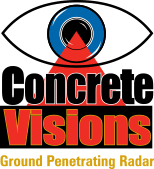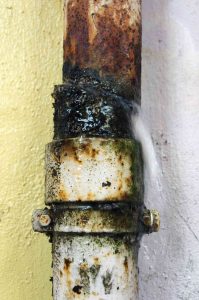Concrete is vulnerable to a wide range of environmental and incidental factors. While no material lasts forever, and concrete deterioration is eventually inevitable, this material is one of the most durable out there when you know how to properly treat and care for it, and what potential threats are out there. To learn more about what can cause concrete deterioration, read on below.
The Corrosion of Embedded Metals
The leading cause of concrete deterioration is the corrosion of reinforcing steel and other types of embedded metals. When steel corrodes, it results in rust which takes up a greater amount of space than the steel originally. This expansion puts stress on the very structure of the concrete which leads to cracking, spallings, and delamination. Steel corrodes because it is not naturally occurring, and over time will inevitably return to its natural state.
Carbonation
Carbonation happens when the carbon dioxide in the air penetrates concrete and has a reaction involving hydroxides. Hydroxides include calcium hydroxide. These form carbonation. Ultimately, carbonation is a slow process, which depends upon the humidity in the air. Over time, it can contribute to concrete deterioration.
Freeze-Thaw Deterioration
When water freezes, it expands. In fact, water expands about 9% its original size. When concrete gets moist and water freezes within it, this produces pressure in the capillaries and pores of the concrete. When the pressure exceeds the tensile strength of the concrete, the cavity ruptures and dilates, causing breaks and eventual deterioration. The freeze thaw cycle can contribute to excessive cracking, scaling, and crumbling of concrete as water constantly expands and breaks it down from within.
Deicer Scaling
Many of the chemicals used for successful snow and ice removal may take care of your ice and snow, but they are not so kind on your concrete. When combined with the freeze thaw cycle, it can play a large part in concrete deterioration.
Choose Concrete Visions for Your Concrete Needs
Concrete Visions has over 12 years of experience and expertise in concrete scanning and we know how to detect any problems lurking beneath the surface. We use ground penetrating radar accurately and expertly and are familiar in many other methods that can be used when appropriate like concrete x-ray and electromagnetic conductivity. We are also very familiar with the latest construction safety techniques and train all of our workers to do their work quickly, accurately, and safely. If you would like to learn more about how we can help you, give us a call at (410) 766-2210 or visit us online. For more articles and tips, follow us on Facebook, Twitter, LinkedIn, and Google+.

